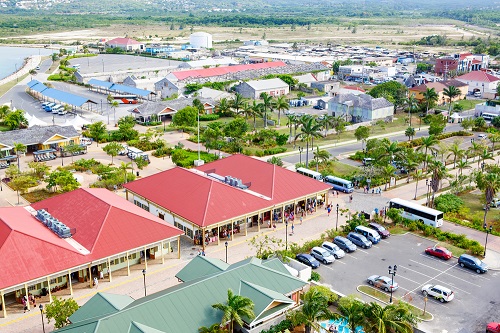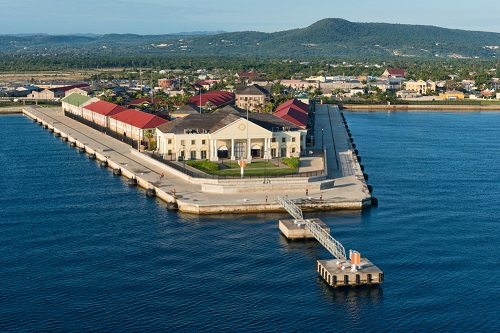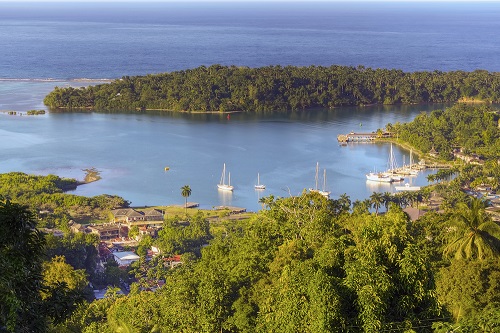If you are living and working in Jamaica, you should be able to access dental and ophthalmic care, but this is likely to be in the private sector rather than under the public healthcare scheme. Most expats choose to take out private health insurance. We will look at some of your options below.
How to register with a dentist
If you are looking to register with a dentist, then it may be worth asking friends and colleagues for their recommendations. Alternatively, you could contact your health insurance provider to see whether they have arrangements with any local clinics. Another option would be to contact the Dental Council of Jamaica in Kingston, which has a list of registered practitioners. The island also has a recently established Dental Hygienists’ Association (DHAJ).
If you are visiting the island and staying in one of the bigger resorts, such as Half Moon, then your hotel may have an emergency dentist on call, if you need sudden dental treatment. You will have to pay out of pocket, but you may be able to claim back if you have a dental plan.
To what extent does national insurance cover dentistry?
Public dental care is limited, and there is currently a significant shortage overall of dentists in Jamaica. However, this may change with the revision of the public healthcare system (see below). The authorities estimated in 2019 that an additional 900 dentists were required on the island; there are currently only around 300. You may therefore wish to consider a private dental plan that includes the option of being treated in the USA.
Jamaica is in the process of overhauling its national health insurance scheme, run by the National Health Fund (NHF), an agency of the Ministry of Health (established in 2003 by the National Health Fund Act). The aim is to provide the Jamaican population with universal coverage. It is also pouring money into hospitals and other medical infrastructures, in line with World Health Organisation (WHO) guidelines. Part of this includes the training of more dentists and dental auxiliaries.
Therefore, the standard of dental care in Jamaica should, hopefully, start to improve. However, at present, you can only expect to find advanced facilities in Kingston and Montego Bay, and these may not be of the same standard as in other countries, such as the US.
A number of dentists in North America – who may be Jamaican in origin – fly to the island to offer free dental care to children, for instance, but this service is for locals only.

Accessing private dental treatment
You can access dental care in Jamaica itself and pay either through your insurance or out of pocket. Alternatively, you could fly to the States, for example, to seek dental treatment in Florida.
Dental tourism is not a major industry in Jamaica, although this may change as the private sector picks up speed. Some sample prices are:
• Dental consultation: JMD$2500 (US$18)
• Routine cleaning: JMD$8500 (US$60)
• Filling: JMD$8500 (US$60)
• Extraction: JMD$8500 (US$60)
• Wisdom tooth extraction: JMD$35000 (US$256)
• Crown: US$1000 per tooth
You may need to consult your insurance provider with regard to pre-approval for some treatments. Remember to ask your selected clinic how they would prefer to be paid. You may need to pay upfront and then submit a claim for reimbursement to your insurance company.
How to register with an optometrist in Jamaica
You can ask friends and colleagues for recommendations or simply visit your local optometrist. If you need specialist care, you can contact your local optometrist, hospital, GP or the Ophthalmological Society of Jamaica.
Opthalmology in the country has been developing over the last decade. New eye clinics have been set up, such as in Black River Hospital and in Kingston.
To what extent does national insurance cover optical care?
Hitherto, optical care in the public sector has been limited, but it is continuing to develop via various initiatives, including private/public partnerships.
For example, Sightsavers has been working with the Mandeville Regional Hospital and their partners (the Caribbean Council for the Blind and the Jamaica Society for the Blind) to develop eye health services for needy citizens. This is a European Union-funded project aiming to reduce blindness in the Caribbean (including in Jamaica, Haiti, Guyana and St Lucia). The goals of the project include:
• Helping to train eye health professionals
• Developing infrastructure, including operating theatres, vision centres and spectacle labs
• Supporting research activities
• Creating public awareness
• Increasing access to services for the blind and visually impaired
To achieve these aims, the project is supporting the refurbishment of new hospital theatres and equipment in the optometry/outpatient side of the Mandeville. It also funds the training of ophthalmologists, optometrists and refractionists, as well as a full-time optometry and low-vision service.

The project is important, as the Caribbean Council for the Blind reports that Jamaica currently has 180,000 persons to one optometrist and the worst cataract rate in the Caribbean. The Chinese have recently made a contribution to alleviating this, via the Bright Journey Eye Care Mission, working from the Kingston Public Hospital (KPH) to provide free cataract surgeries for Jamaicans in need.
Despite this provision, as an expat in the country, it is likely that you will access eye care in the private sector, unless you need emergency eye care from a local hospital.
Accessing private eye treatment
You should not have too many difficulties in accessing private eye care. The main urban centres in Jamaica have a number of optometrists. The island is not a main destination for corrective eye surgery, but Jamaica does have one clinic: the Caribbean LASIK Vision Centre (CLVC) in Kingston. Contact them for prices. Cataract surgery on the island costs around US$1500.
If you have private health insurance, make sure that you have a clause that covers eye care, if you think you may need it during your stay in Jamaica. There is also the option of being treated in Florida or elsewhere in the US, but make sure your insurance covers this.

